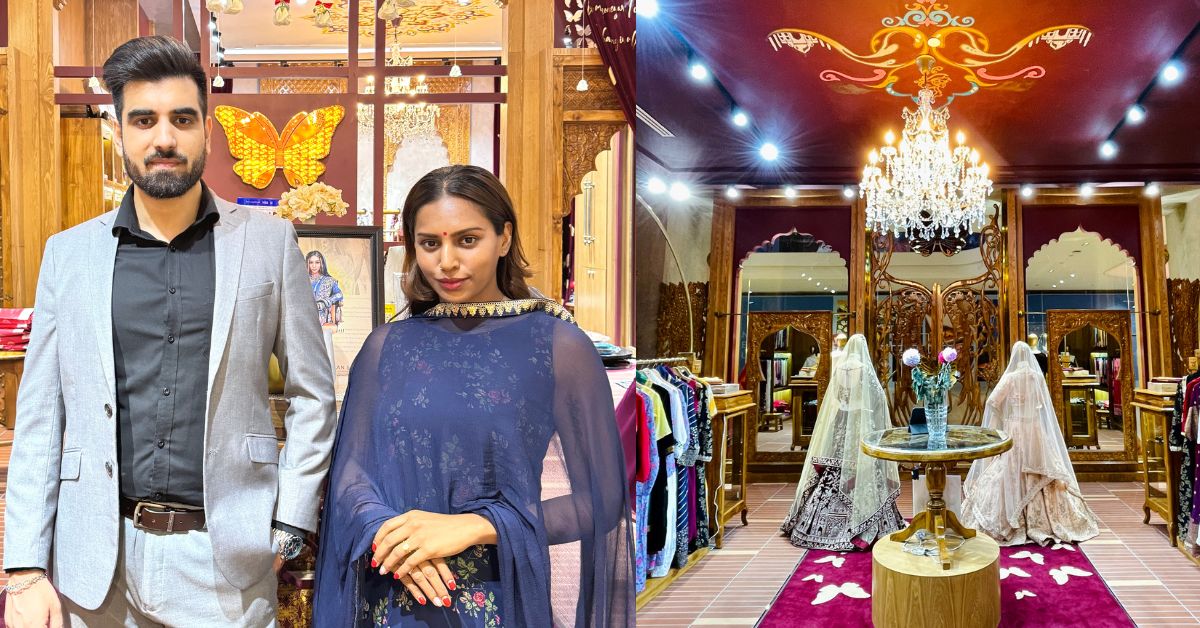“My biggest flex is that not a single soul knew who was behind Yeshan Sarees till about two years ago.”
Those were the words of young entrepreneur Yesshminni Ravindran who founded Yeshan Sarees in 2015 with her business partner, Mir Momin Parveez. Yeshan Sarees is an Indian ethnic fashion brand which started as an online business on Instagram.
Fast forward 10 years later, Yeshan Sarees has won the hearts of customers in 35 countries, creating over 7,000 beautiful garments. They even opened a 1,100 sq ft flagship boutique at Pavilion Bukit Jalil in 2022.
A year later, as the first Malaysian Indian ethnic apparel brand in Pavilion Bukit Jalil, Yeshan Sarees made waves by partnering with Parkson Elite in Pavilion Kuala Lumpur. They also teamed up with Zalora, bringing their stunning lehengas, sarees, and kurtis to even more fashion lovers.
An entrepreneurial spirit from the start
Growing up in Ipoh in a traditional family, Yessh, 28, excelled in sports and music and initially aimed to become a doctor.
However, her disillusionment with the medical field’s focus on titles over purpose drove her to seek financial independence and a passion for affordable ethnic wear.
“Before starting Yeshan Sarees, I tried and failed at several businesses, including trading spices and salt, selling antiques, and running a burger stall. I also worked part-time in a cafe during my first year.”
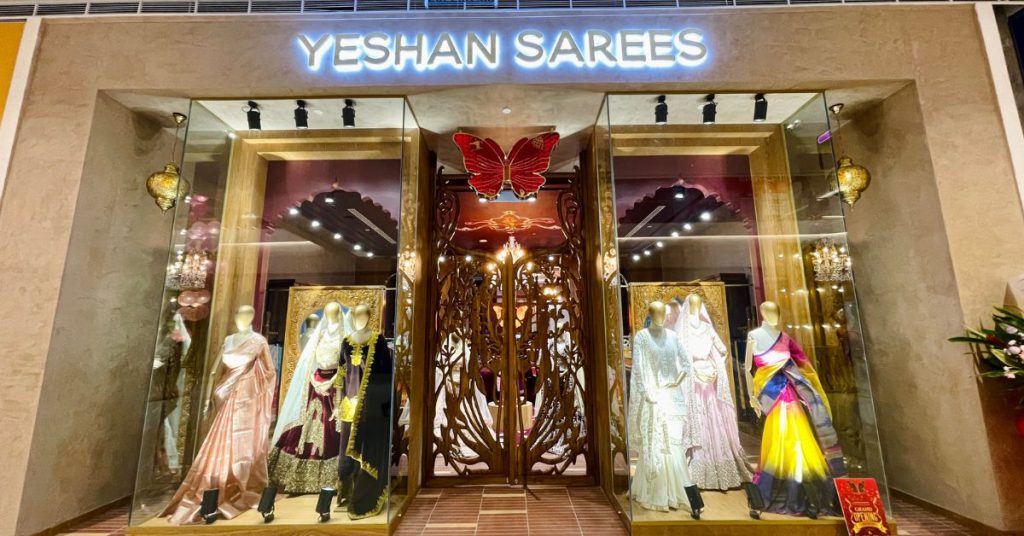
“I wanted to make a living to support myself financially without depending on my parents and to do charity. So, I started Yeshan Sarees without my parents knowing and in the first month, I made a profit of RM 3,000,” she told Vulcan Post.
A few years later, even as sales grew, her family still wasn’t proud of her achievement and disapproved of her career path. Hence why she had to keep their identities a secret.
On the other hand, Mir, 27, a computer science student at Lancaster University Sunway Campus, serves as the CEO and co-founder of Yeshan Sarees.
His entrepreneurial journey began in Srinagar, Kashmir, where he sold gadgets for profit.
Despite being on a promising academic path in New Delhi, the pressures of prestigious exams nudged him towards his true passion—business.
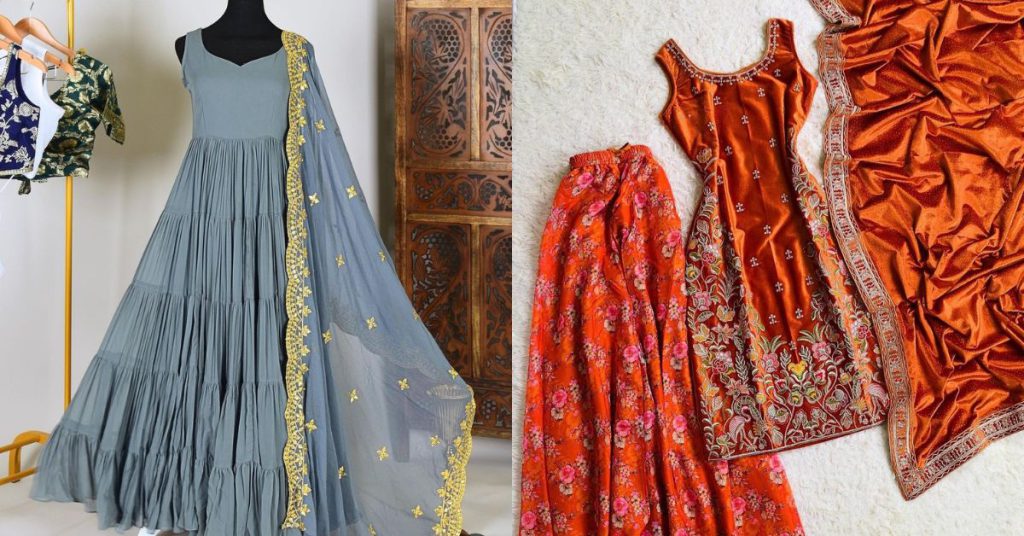
Encouraged by his family, Mir shifted to Malaysia for further studies, where he realised he could create more value by forging his own path rather than working for tech giants.
The birth of Yeshan Sarees
Mir’s strategic vision and Yessh’s relentless drive laid the foundation for their success.
They began as an Instagram store, sourcing clothes from Indian suppliers to fill a gap in the affordable ethnic wear market in Malaysia. The overwhelming response confirmed the potential of their idea.
“Our vision for Yeshan Sarees wasn’t well-defined at the start. It was like raising a baby without knowing what it would become; we guided it as it grew. Today, our brand has taken shape through our shared vision and mission,” they shared.
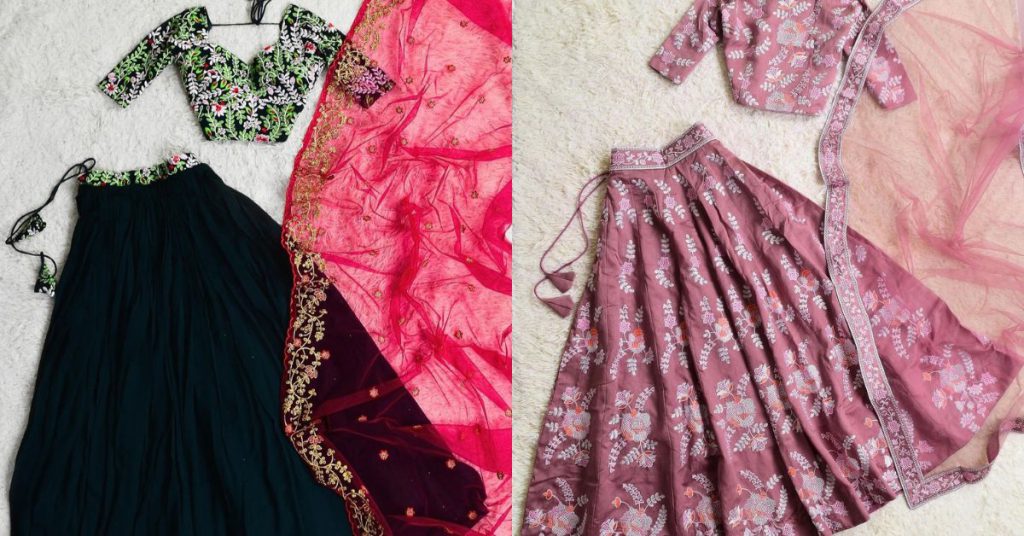
Without formal business education, they leveraged their scientific backgrounds to solve problems and drive their venture, and have achieved seven digits in annual sales.
“Our business till now has grown through word of mouth, driven by our commitment to premium quality products. We make sure we manufacture products at the highest level of craftsmanship and put exceptional concern over customer service, both before and after sales,” they said.
Crafting a luxurious experience
The moment you walk into the store you are greeted by intricate woodwork crafted from Burma teak wood by 50 artisans over four months. The terracotta tiles chosen for the flooring evoke a palace-like atmosphere.
At the center of the store, a handcrafted crystal chandelier hangs majestically, while the ceiling features a hand-painted depiction of the Taj Mahal and a Bengal tiger, created by an Iranian artisanal painter over seven days.
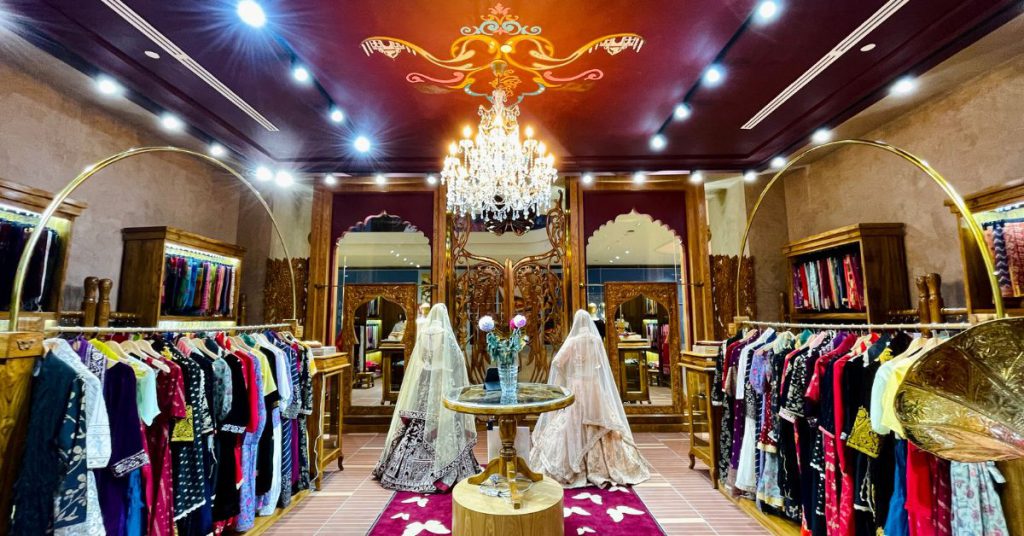
A Persian silk carpet adds further opulence to the floor, providing a cosy space for brides to discuss their dream outfits with the store’s staff.
According to them, Yeshan Sarees redefines luxury by focusing on the experience and the feeling it creates rather than the price.
“We invested a million ringgit into the interior design of our store, creating a beautiful
palace that set a new standard for boutiques in Malaysia. The confidence to take such a big risk came
from the wonderful community we had built,” they shared.
With 95% of their collection priced between RM120 and RM560, they aim to make every customer feel like royalty.
This attention to detail addresses the gap in the market for premium ethnic wear shopping environments in Malaysia, providing a memorable and luxurious shopping experience.
“It was intentional to provide a luxurious experience because Indian shoppers in Malaysia, especially for ethnic wear, are often deprived of this. Brickfields Little India, for example, is inaccessible to many races and lacks a premium shopping environment for Indians despite high prices,” the founders said.
Besides, Yessh and Mir’s sarees come from five different states of India, each bringing a unique flair to their collection—northern fusion, modern banarasi, Maheshwari handloom, Bengal looms, and south classics.
Their ready-to-wear collection is designed with the latest trends in mind, often inspired by what’s hot on Instagram and in Bollywood shows and movies. They’ve got kurtis, lehengas, and Anarkalis, all produced in their own manufacturing unit in northern India. They also have in-house embroidery, digital print, and foil print machines.
“During our initial years of exploring and understanding fabrics, we made multiple trips to India. Now, we travel whenever necessary for inspections,” they shared.
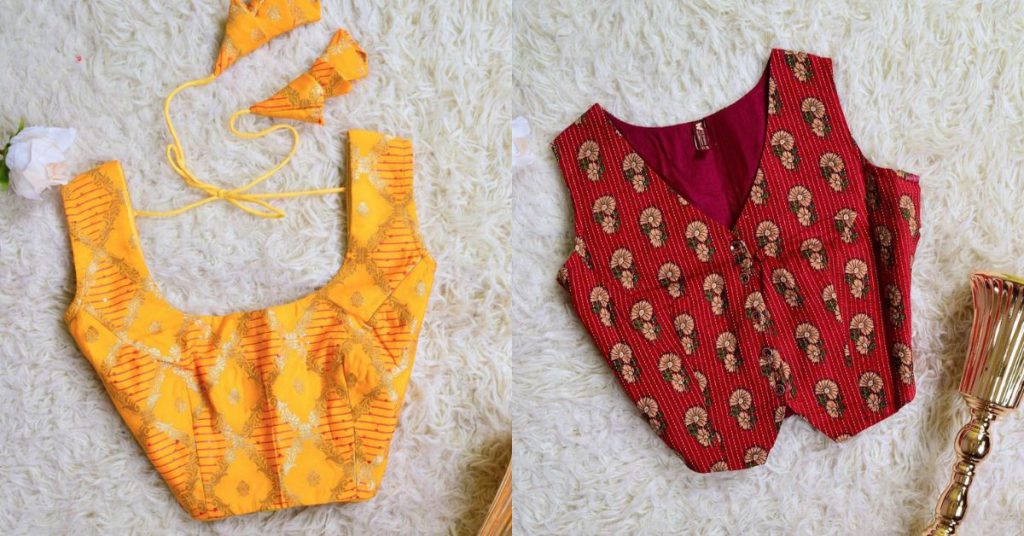
Bridging gaps in the market
Yeshan Sarees tackles several issues in the Malaysian ethnic wear market.
They combat the prevalence of fake products by educating customers on the authenticity and origin of each saree and promoting informed buying.
“While there are many saree sellers in Malaysia, over 95% are merely traders who buy from India and sell locally without controlling the quality or authenticity. This often leads to fake products being sold as luxurious Indian sarees,” said Mir.
According to them, the quality of Indian ethnic wear sold in Malaysia is often disappointing. Many items are rejected surplus from India and sold at inflated prices.
Plus, there aren’t many stores where people from other races can come, ask questions, understand the culture and products, and leave happy.
“The current Indian ethnic market in Malaysia isn’t welcoming to other races. Malays and Chinese clients admire Bollywood and Indian attire but often feel clueless about the culture,” Mir said.
Hence, they aim to change that by making Indian ethnic wear accessible to all races, allowing everyone to enjoy and embrace the culture.
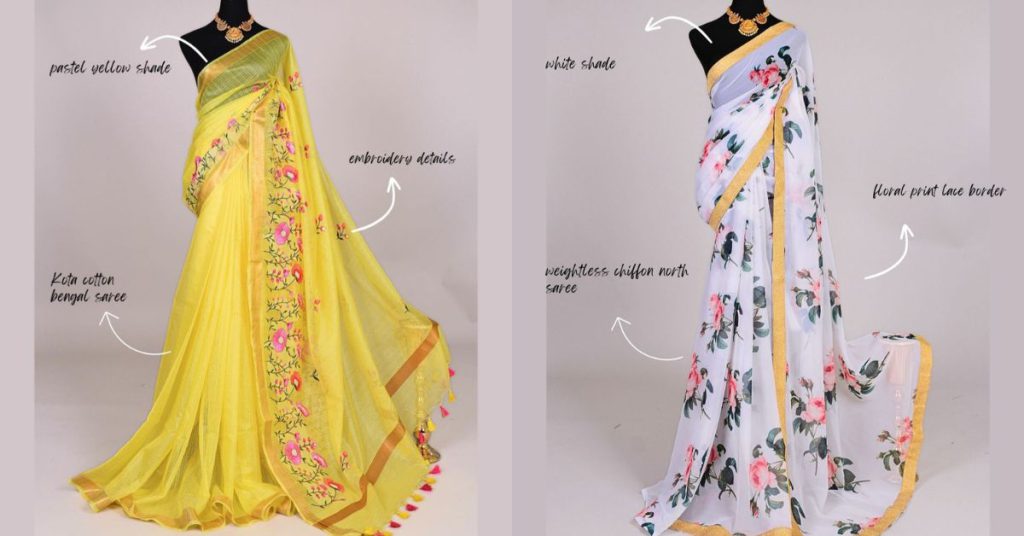
Each product sold is carefully curated and made under their supervision, further distinguishing their brand and giving them a competitive edge in the market.
Although there are a lot of choices for Malaysians to shop here, most of my family and friends who recently tied the knot swore by shopping for bride’s sarees and traditional outfits in India, claiming it’s way cheaper.
However, Yessh and Mir highlighted that brides often embark on journeys to India not solely due to cost considerations, but rather due to a deep-seated trust in the authenticity of the products.
“In Malaysia, you can find Kanjivaram sarees priced anywhere from RM200 to RM5,000, but no one explains the difference. Brides go through the effort of travelling back and forth to India, paying for hotels and air tickets for the whole family, not to save money—they actually spend more than they would in Malaysia—but to find a genuine hand-loomed silk product.”
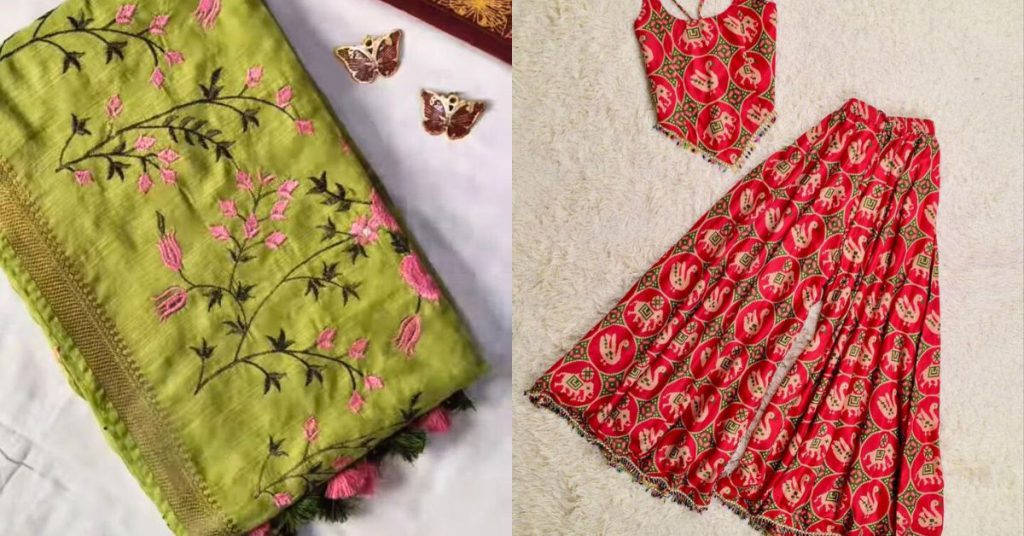
“The only solution is textile literacy, asking the right questions and being informed buyers,” they shared.
Innovations and challenges
Despite numerous challenges, including the difficulty of establishing a Malaysian Indian ethnic brand in prestigious malls, they have persisted.
“We faced multiple rejections, often because they didn’t take us seriously due to our age—we were only 25 at the time—and questioned if we had enough stock for a store.”
“It took four months of persistent convincing to prove to Pavilion management that we were worthy of being in such a prestigious mall and that we would deliver an exceptional interior design and create a unique brand experience maintaining the luxurious image of the brand Pavilion,” Yessh shared candidly.
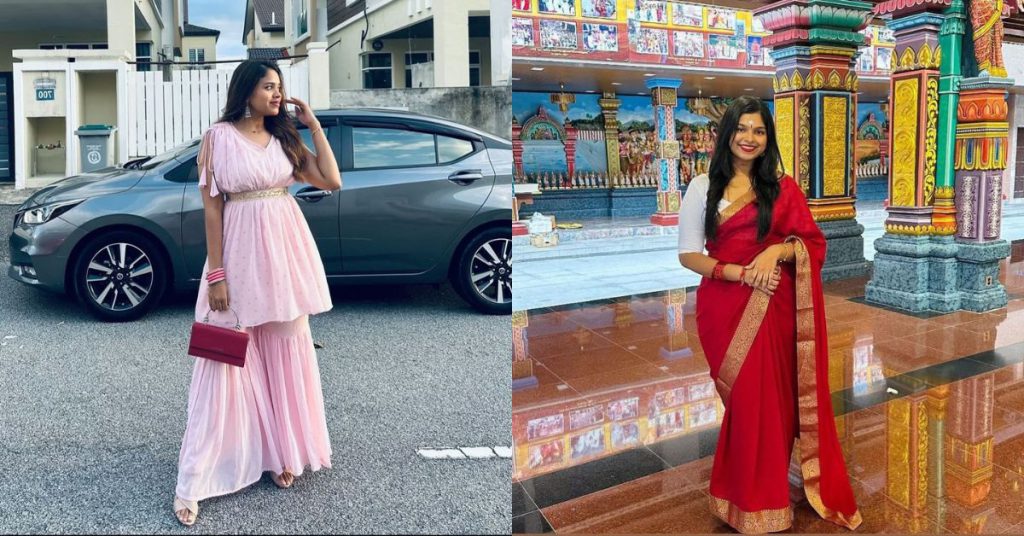
Even after that, their journey wasn’t all smooth sailing. The opening months were particularly overwhelming and Deepavali month hit them hard. They were so focused on the new store that their online clients felt neglected. The pressure mounted, leading to feelings of inadequacy and depression.
The store’s launch month brought an overwhelming response, but finding reliable help was a nightmare. People joined and left within a day. Yessh and Mir were caught in a gruelling routine: opening the store at 10AM, closing at 10PM, standing for 12 hours straight, and constantly folding and unfolding sarees for a flood of customers.
After they managed to hire someone permanently, they figured out the dos and don’ts of running a physical store, improved customer interactions, and started managing clients by appointment. Slowly but surely, they settled into a routine.
The way forward
Looking ahead, Yeshan Sarees is committed to a sustainable approach, choosing to grow organically and maintain profitability without diluting equity for capital.
Their strategy involves securing long-term partnerships with established multi-brand stores like Parkson, Isetan, and AEON, and opening smaller outlets in malls and cities across Malaysia.
They aspire to establish a presence in the top three malls in Malaysia and create a standalone flagship store in prime locations such as Bangsar.
Encouraged by the positive response to their clothing on Zalora Singapore, they also consider Singapore a potential market for expansion.
“These steps reflect our commitment to growth while staying true to our values and maintaining the integrity of our brand,” they shared.
- Learn more about Yeshan Sarees here.
- Read other articles we’ve written about Malaysian startups here.
Featured Image Credit: Yeshan Sarees

